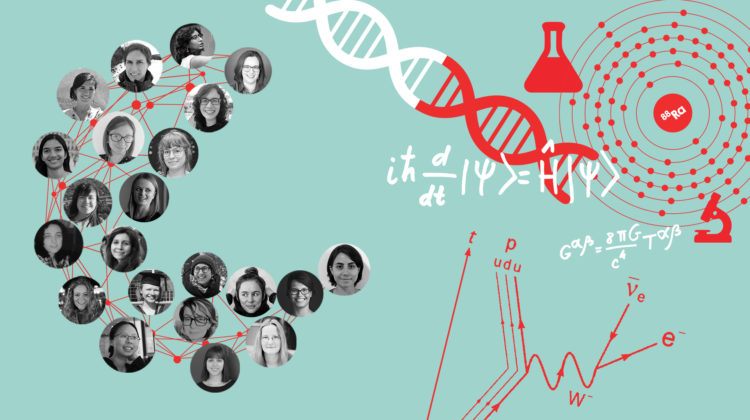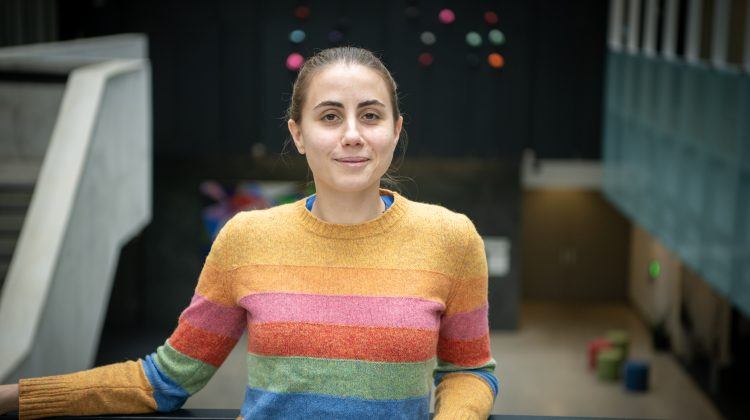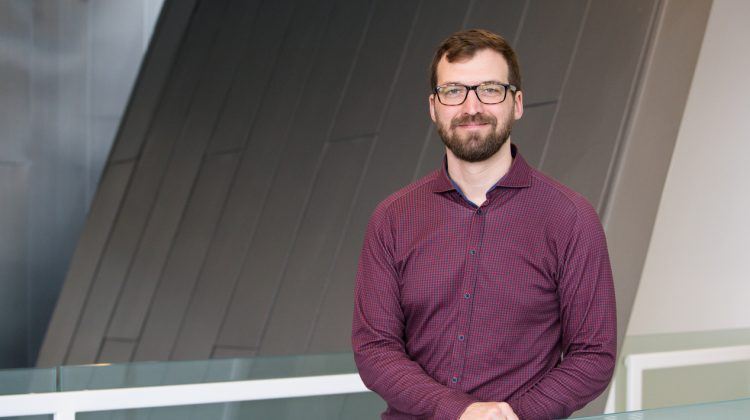Undergraduate students level up their research skills with PSI Start internships
Perimeter Institute’s 2023 PSI Start interns hail from all around the world. Together, they found a community, and a chance to do research in quantum computing, condensed matter, and more.
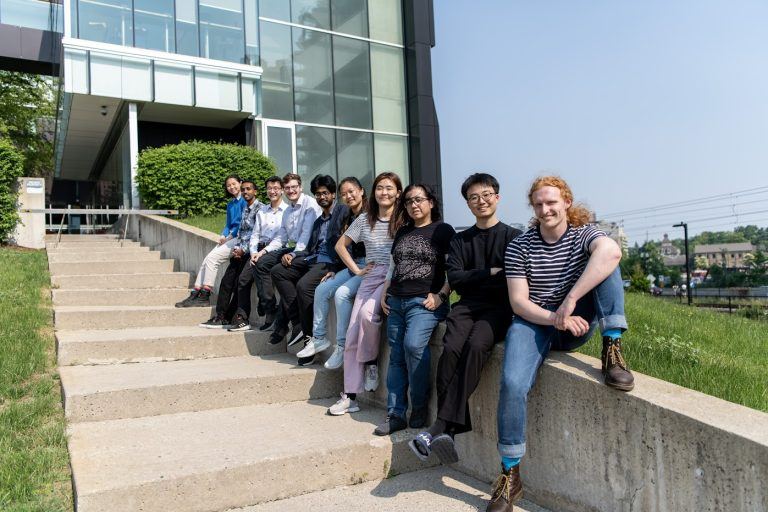
The leap from undergraduate studies to grad school is no easy thing. Students shift from learning the fundamentals to applying them; from studying research results, to producing them. By the time young scholars enter grad school, they are well on their way to becoming experts poised to push the boundaries of science with their research.
It’s an exciting and intimidating step.
The PSI Start internship program is designed to take the edge off that big leap, easing the transition into the world of graduate-level physics for students nearing the end of undergrad. The summer-long program gives them a chance to put their research skills to the test, carrying out projects and presenting their findings to their peers and mentors.
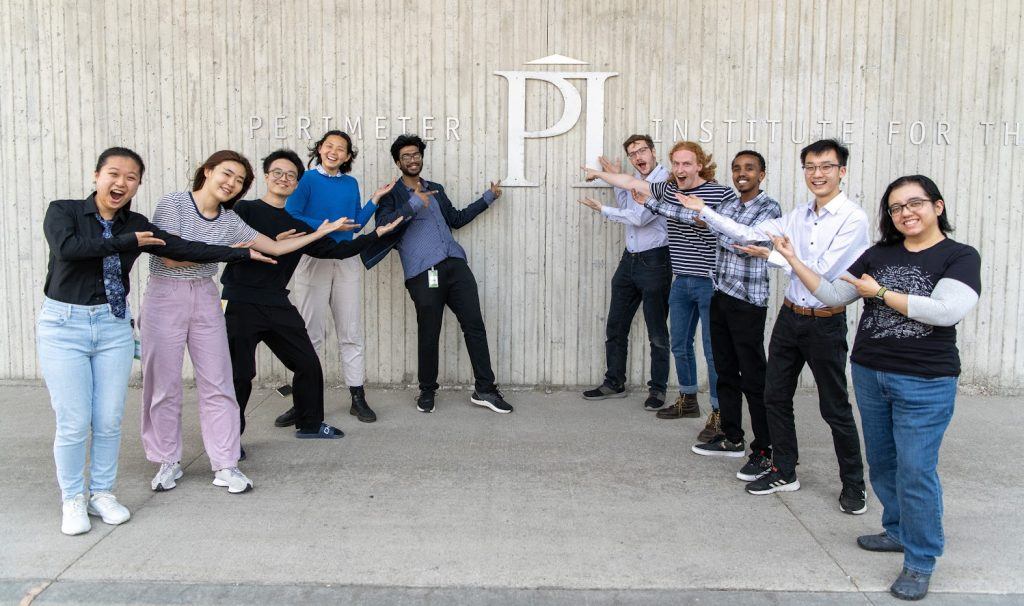
“Research is why I’m here,” says Ruby Wei, one of this year’s interns. “Perimeter has a very open environment for collaboration and discussions. You can catch someone in the hallway and start a conversation with them. That helped me a lot when I was trying to solve a problem and got stuck. I’m surrounded by brilliant postdocs, PhDs, and grad students. It just feels awesome.”
Wei, who is an honours physics student from McGill University, is one of 11 interns this year. Some are local, like Isaac Cheng, the recipient of this year’s Mike Lazaridis Scholarship at the University of Waterloo. Others come from around the globe, including the United States, Mexico, Bangladesh, South Korea, and Ethiopia.
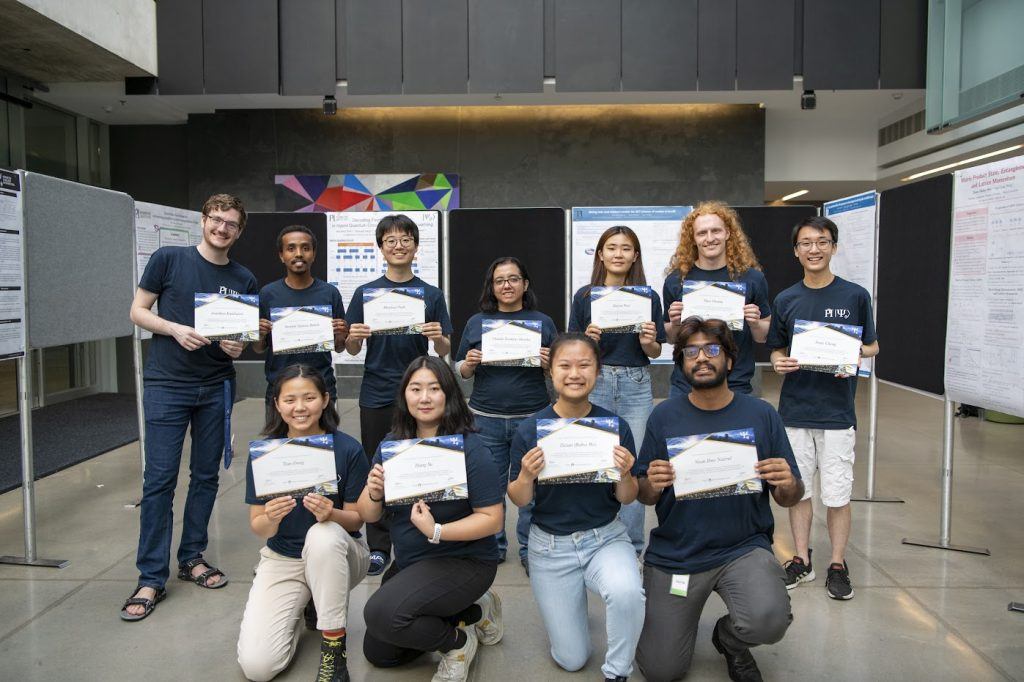
Mincheol Park, another of this year’s interns visiting from Harvard University, treasured the opportunities to learn from his peers.
“The community of the PSI Start internship is really amazing,” he said. “We have very different backgrounds and very different ways of studying physics. I think these diverse perspectives are very valuable – not only diversity in terms of the cultures and backgrounds, but also diversity in how we view physics and how we understand nature.”
Those perspectives helped him refine his own approach to research. Park is working with Faculty member Timothy Hsieh to study quantum circuits. Unlike a classical circuit, quantum circuits are probabilistic, and have a degree of randomness to them. There so are many trajectories that can happen inside a quantum circuit that a researcher might have to run “thousands and millions of experiments” to realize a result, Park explains.

Fortunately, there are ways to simplify these quantum systems. Park’s project uses machine learning and classical statistical analysis methods to do just that, making a theoretical result more experimentally accessible.
The project is a big one, and Park hopes to continue to work on it into the fall, even after the internship’s end.
Wei is also interested in quantum computing and condensed matter theory; like Park, her goal is to cut through the complexity of large quantum systems, though she is going about it in a different way.
“One problem that we have in quantum physics is that we’re dealing with a lot of particles. If we want to describe each particle by some parameter, the number of parameters that we need grows exponentially. Regular computers cannot keep track of that many exponentially growing parameters,” she says.
But by working with a mathematical tool for describing quantum systems, known as matrix product states, she can reduce the number of parameters.
It’s a challenging topic, but teamwork makes all the difference. Wei says Perimeter’s culture of collaboration was valuable to her and the other interns – and that the building’s layout itself encouraged creative thought.
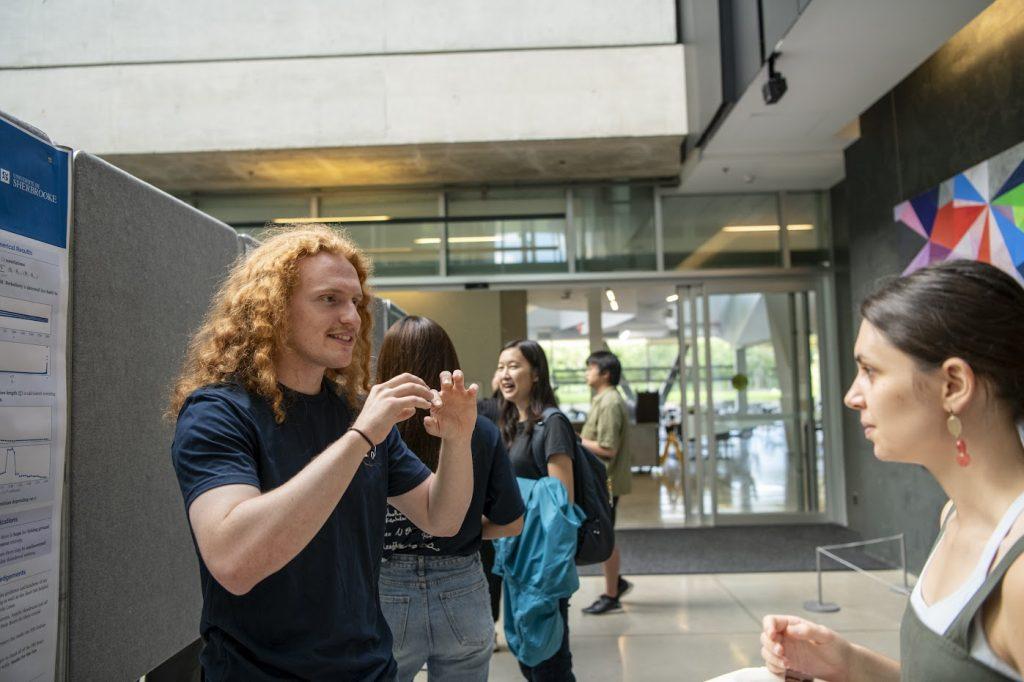
“I like that there are a lot of blackboards, and scrap paper on the dining tables. I just love it. It’s so convenient and so nerdy,” says Wei.
Of course, doing research is only part of the scientific process. Sharing results and getting feedback is equally important. In August, the interns took part in a mini-conference, where they gave detailed poster presentations about their work. And there were other opportunities for communicating their research throughout the summer.
For example, Wei and one of her colleagues, Nian Ibne Nazrul, found lots of forums for sharing their research.
“In a sense, it’s not just the research internship, is it?” says Nazrul. “The interns also give talks. Ruby [Wei] and I were invited to give a talk at the journal club of the Quantum Matter Group at Perimeter. Being here and being able to give talks is an experience. That is part of being a physicist, being able to talk to other people effectively. It’s a good way to make connections.”
Nazrul is a student at BRAC University in Bangladesh. His project this summer is in mathematical physics, using the Levin-Wen model (also known as the string-net model), which describes some aspects of condensed matter physics.
At first, Nazrul was intimidated by how much there is to know about condensed matter physics – there are decades and decades of research by physicists around the world, and the state-of-the-field is constantly changing. But the PSI Start program helped him realize he didn’t have to learn it all before beginning his own research – it’s possible to specialize.
“This internship program gave me an experience of how research is done. Before, I thought that I would need to learn, learn, learn, and then do research – but now I feel like I can learn and do research at the same time. I can gather what I need to know as I go,” he says.
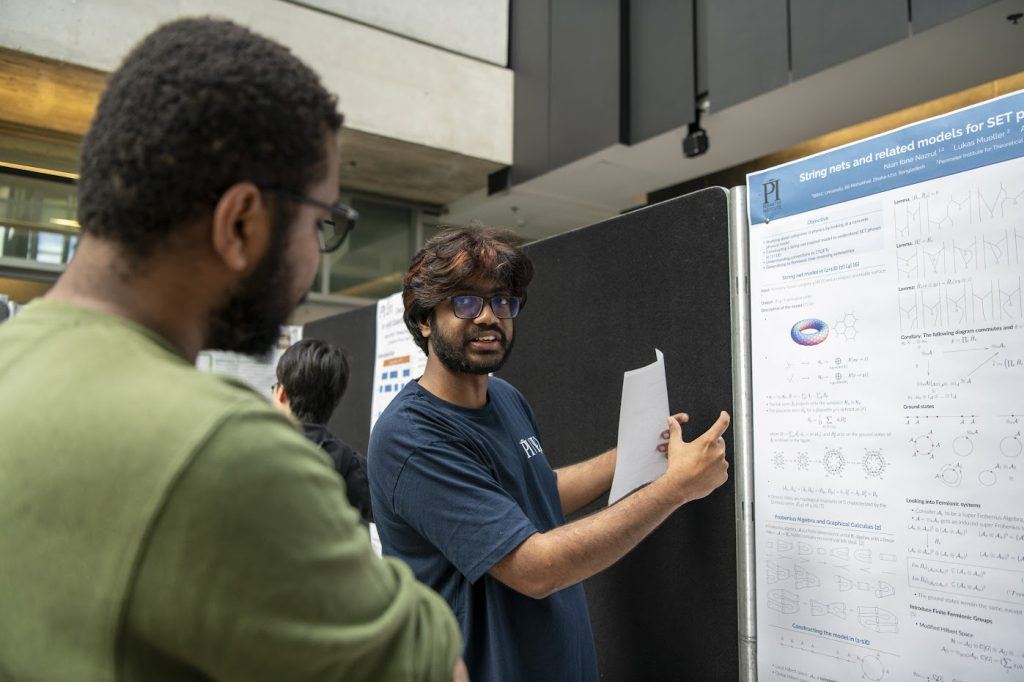
What is it that motivates Wei, Park, Nazrul, and the rest of their peers to press on in spite of the complexity of their research?
“I would say it’s the beauty of physics,” says Wei. “I was not sure if I wanted to continue in physics in grad school, or just be a physics enthusiast. But there was this proof that completely blew my mind. It’s Bell’s inequalities, for which the experimental work won the Nobel Prize last year. I want to be one of the people who can make that kind of contribution. Or, as the slogan says, ‘be part of the equation.’”
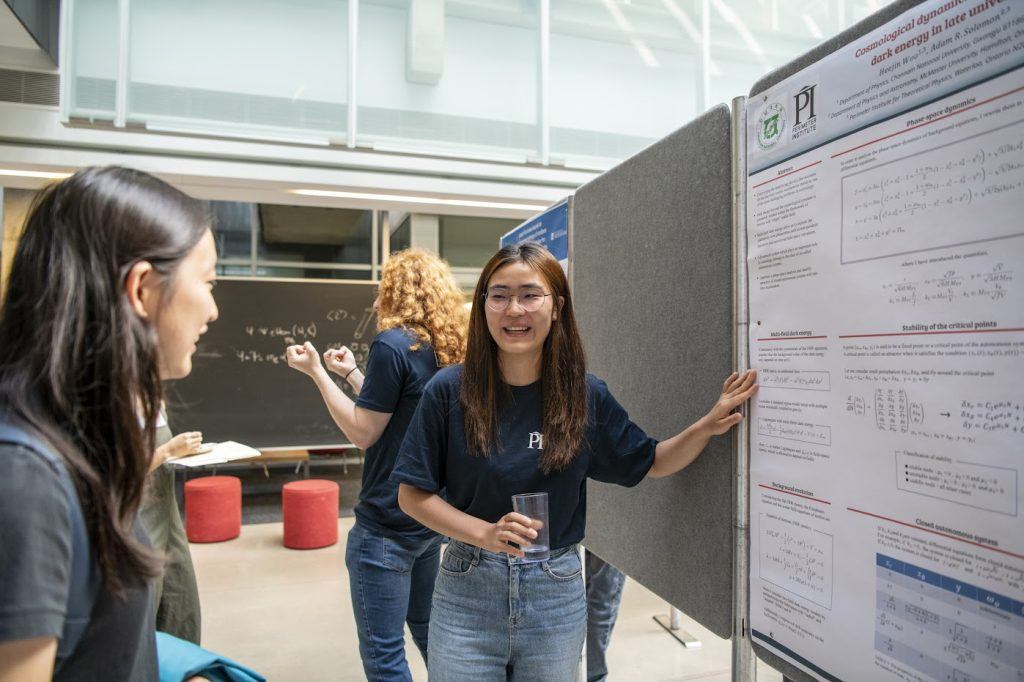
There’s no telling where this year’s PSI Start interns will end up, but their commitment and enthusiasm for physics is clear, and the next stage of their journey will begin with a leg up, after all that they’ve learned and experienced through their summer internship.
“I want to emphasize that I think PSI Start internship is really, really special,” says Park. “When I go back to my home college, I will talk very highly about this program to everyone. You can experience graduate school life as an undergrad and have more degrees of freedom for choosing what you want to study. This is a really fantastic program, and Perimeter is a really fantastic environment.”
Students interested in the 2024 PSI Start program can find more information here.
The PSI Start program is supported by Michael Serbinis and Laura Adams.





















































































